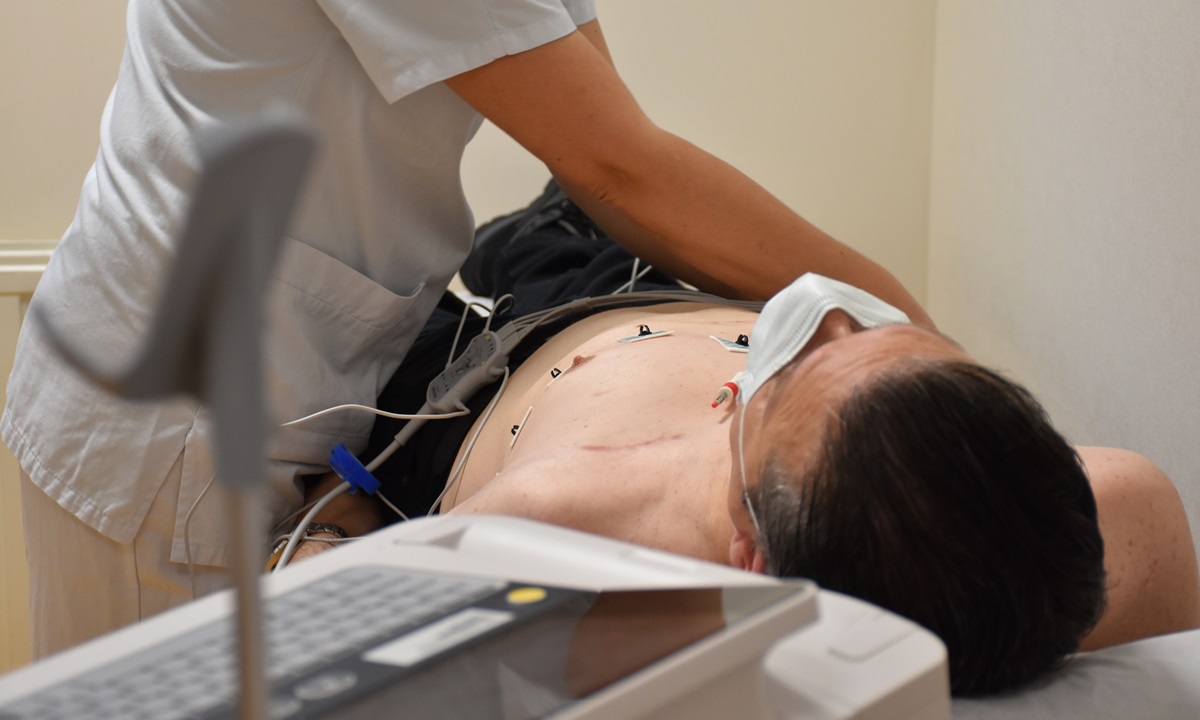In France, around 1 million people are affected by heart failure, 120,000 new cases are diagnosed every year, 20% of the population will develop heart failure, and around 150,000 hospital admissions per year are due to heart failure, and the number is still rising:heart failure is a major public health problem.
Heart failure is a major public health problem, mainly affecting adults, and is linked to all the risk factors for cardiovascular and metabolic diseases, as well as ageing.
Causes and risk factors
The main causes of heart failure are acquired: coronary insufficiency, particularly after a myocardial infarction, arterial hypertension, cardiomyopathies, ageing, valvular pathologies, inflammation of the heart such as myocarditis, certain anti-cancer chemotherapies, alcoholism, etc
There are also genetic causes of so-called familial or primitive cardiomyopathies. There are several forms of cardiomyopathy: hypertrophic, dilated, restrictive or infiltrative, and arrhythmogenic right ventricular dysplasia.
Symptoms and severity
The main consequence of heart failure is a limitation in patients’ exercise capacity. This ranges from a drop in sporting performance to a limitation in daily activities. Clinically, this limitation manifests itself as breathlessness, weight gain, oedema and fatigue; these symptoms are often of little concern to patients, who put them down to a lack of physical activity or ageing. It is a serious disease: despite improvements in treatment, around 1 in 2 patients will die 5 years after diagnosis, and hospitalisation is frequent during relapses.the causes of death are linked either to the progressive and terminal deterioration of the pump, or to sudden death linked to the unexpected occurrence of a heart rhythm disorder.
How is it treated?
Considerable progress has been made in the treatment of heart failure over the last 30 years .
Alongside the old drug treatments, diuretics, venous vasodilators and digitalis, progress has come from the advent of new classes of drugs: inhibitors of the renin angiotensin and aldosterone systems, which control the body’s salt and water content; beta-blockers, which are antagonists of the sympathetic system; and, more recently, inhibitors of the degradation of natriuretic peptides and inhibitors of cellular sodium and glucose transporters . These different therapeutic classes have been shown to prolong survival and reduce the risk of hospitalisation.
Resynchronisation
By implanting a special pacemaker, the heart can be allowed to contract harmoniously – resynchronisation, a veritable therapeutic revolution.
A defibrillator can be implanted to prevent sudden death, one of the main causes of death in patients with heart failure.
Resuming physical activity, therapeutic education, remote monitoring
Resuming physical activity is one of the mainstays of heart failure treatment. Its effectiveness in improving quality of life has been well established, and its impact on survival is highly probable. Therapeutic education and patient support programmes play a major role in helping patients to live with their disease on a daily basis. Patient monitoring via telemedicine is expanding rapidly.
Heart transplants
This is the ultimate solution, reserved for a small number of patients because it is limited by the number of grafts available. The development of circulatory assistance technologies, which make it possible to overcome severe heart failure or sometimes to be permanently implanted, makes it possible to overcome the lack of available grafts. These techniques involve the implantation of a pump to compensate for the heart’s dysfunction.
Is there any research into this condition?
This is one of the most active areas of cardiovascular research, from the molecular and cellular bases, in particular the identification of genes, to new treatments and the development of multidisciplinary care pathways between hospitals and the general public. This is a very dynamic area of telemedicine.
ICAN’s response
From basic research to patient care, the lHU teams are at the cutting edge. They were pioneers in identifying the genes involved in primary forms of cardiomyopathy and in the use of certain biomarkers. They have also contributed to a better understanding of the molecular and cellular basis of heart failure, one of the key results being the identification of the first gene therapy target for heart failure.
As France’s leading centre for heart transplants and one of the leading centres for the management of heart failure patients, and a reference centre for family forms, every day our teams continue to make progress in the management and care of heart failure patients.








